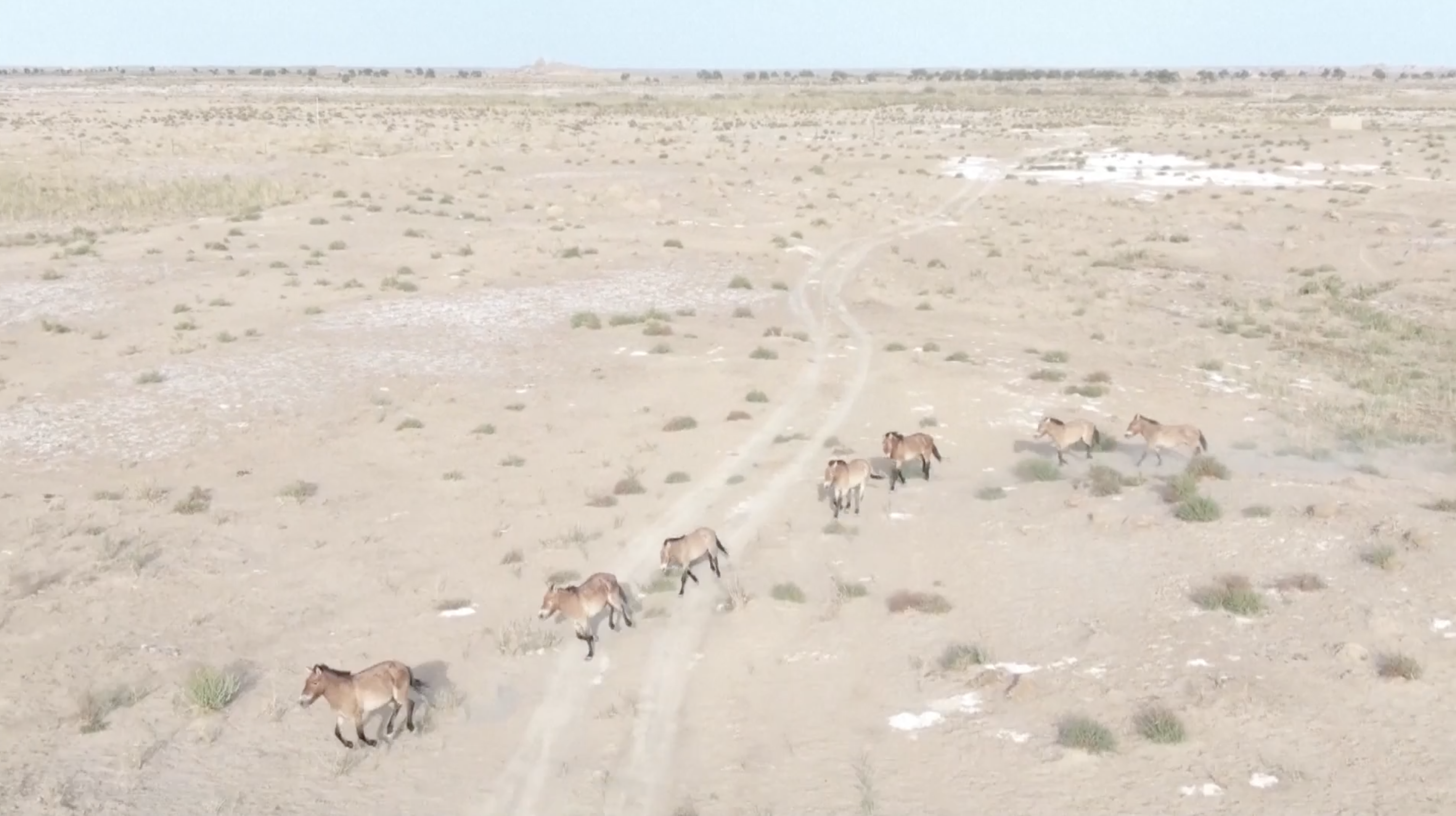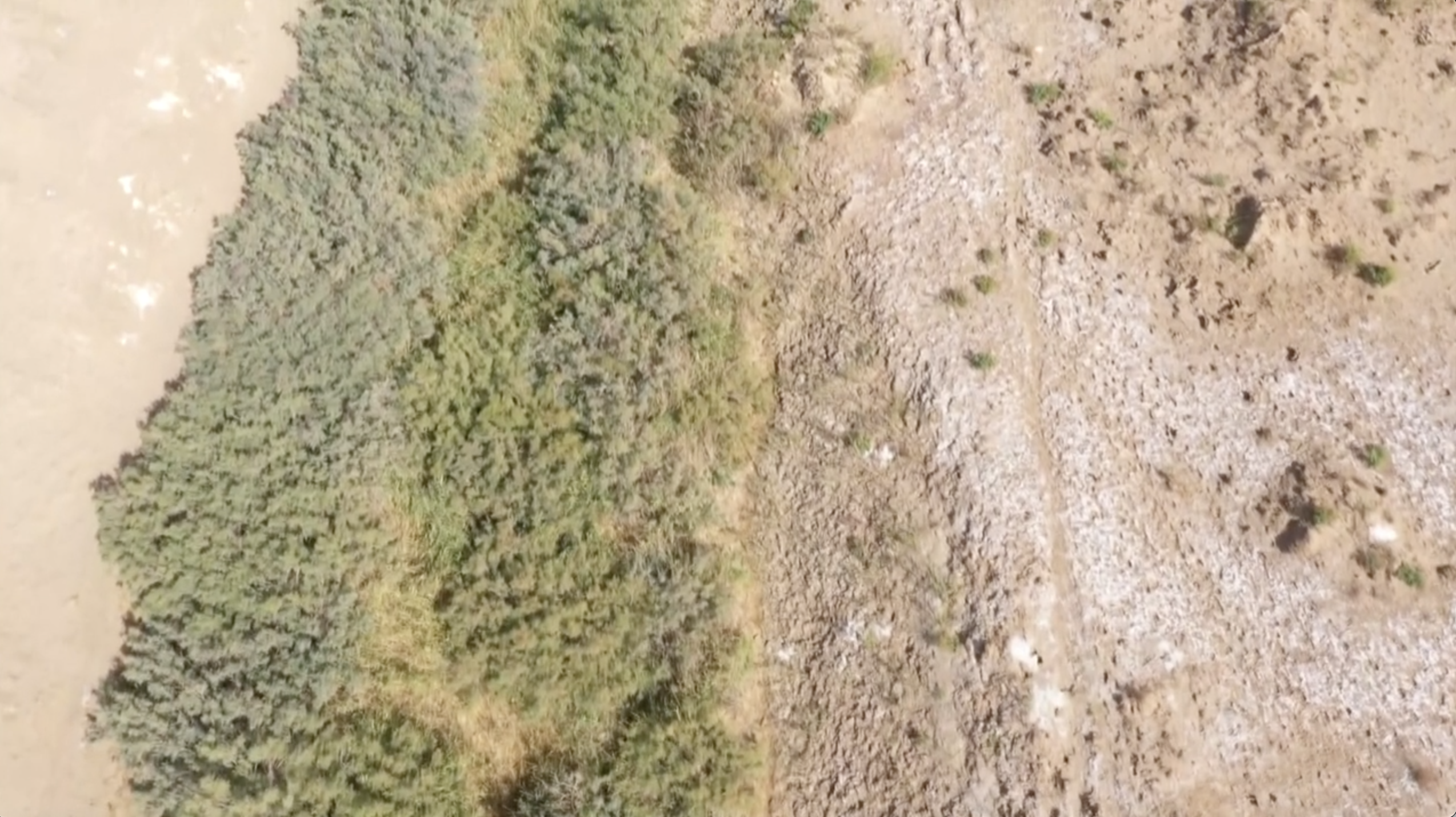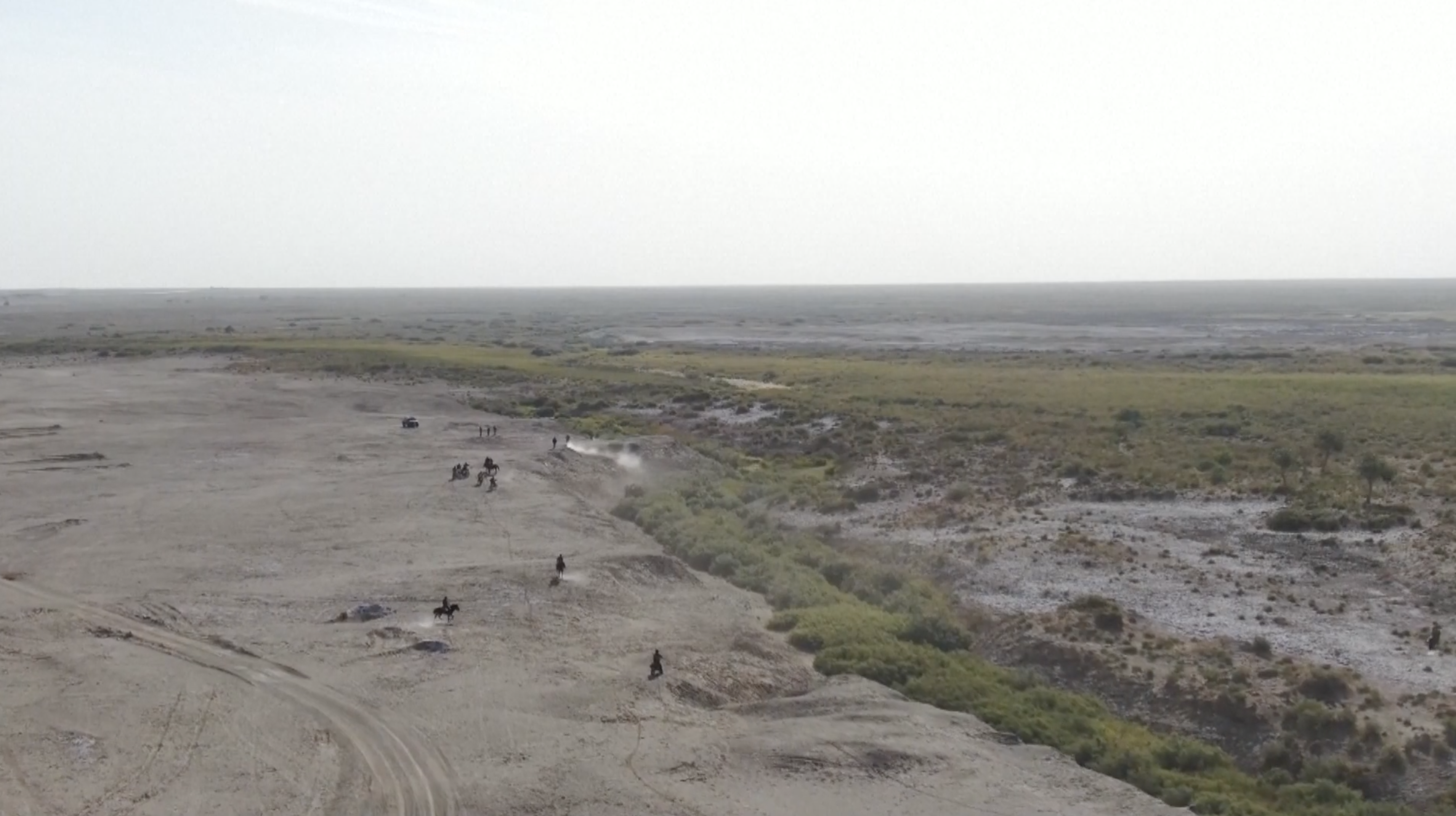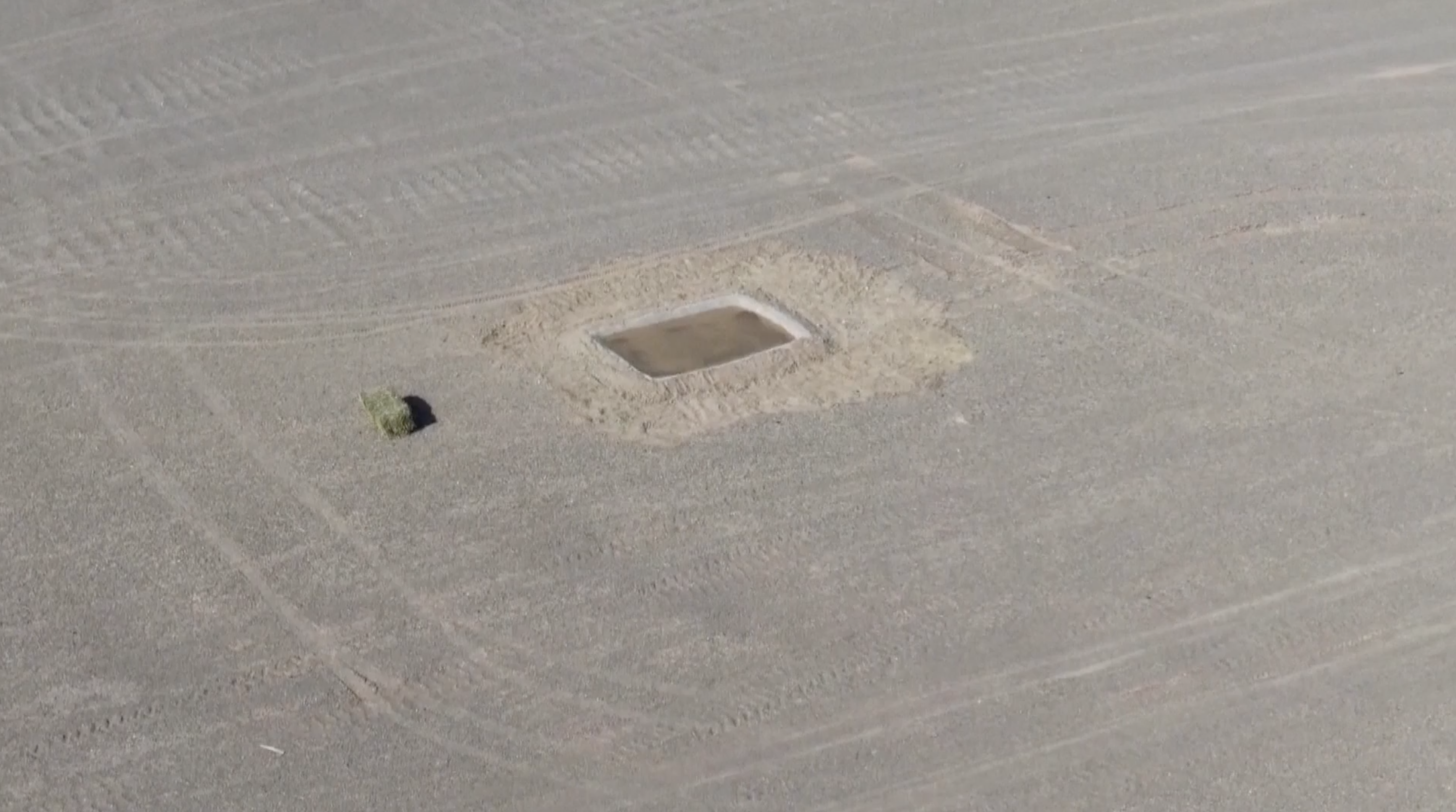
One batch of released Przewalski's horses. /CMG
One batch of released Przewalski's horses. /CMG
Nineteen adult Przewalski's horses were released into the wild on Saturday in northwest China's Gansu Province to restore the population of this critically endangered species.
The horses were once semi-free-range in the Majuanwan Wetland of the West Lake National Nature Reserve in Gansu's Dunhuang for a national breeding program.
The Przewalski's horses, also known as the Asian wild horse, which retains the original genes of equine animals, is a first-class protected animal in China, and is also one of the endangered large wild animals in the world.
In 1985, China launched a plan to gradually recover and rebuild the population of the horse by bringing in foreign species and setting up breeding bases in Gansu and Xinjiang Uygur Autonomous Region.
A total of 28 horses were released into the Dunhuang West Lake National Nature Reserve successively in 2010 and 2012 for semi-free breeding. After more than a decade of natural reproduction, the number of the horses there reached 102 by the end of July 2023, which has exceeded the carrying capacity of the area.

View of natural environment where the Przewalski's horses live. /CMG
View of natural environment where the Przewalski's horses live. /CMG

View of natural environment where the Przewalski's horses live. /CMG
View of natural environment where the Przewalski's horses live. /CMG
According to Saturday's releasing plan, 40 horses will move to the Da Mamitu Wetland 30 kilometers away, where there are richer water and grass resources and a larger area.
Due to the possibility of fighting between the different herds, the release was carried out in batches.
The first batch of three horses left the semi-free-range area at round 08:30 a.m. through a 1,200-meter-long fence gap, entering a somewhat unfamiliar, challenging and also a wider wild environment. Then, three more batches of 16 horses left the area.
All the released horses are adults, given that underage foals are not fully adaptable to the wild.
In order to ensure a smooth and successful release, the staff completed the individual archives of Przewalski's horses in the West Lake National Nature Reserve and the Gansu Anxi Extreme Drought Desert National Nature Reserve, including information such as serial number, sex, origin and health status.
In addition, the staff collected fresh feces of the horses to be released to detect the degree of internal parasite infection and implement deworming. They also repaired the deformed hooves of some horses.

Herdsmen observe the Przewalski's horses from distance. /CMG
Herdsmen observe the Przewalski's horses from distance. /CMG

Water and food supply for the Przewalski's horses. /CMG
Water and food supply for the Przewalski's horses. /CMG
A group of experienced herdsmen from the nearby Subei Mongolian Autonomous County also participated in the releasing work to help guide and escort the horses.
Along the planned releasing route, five supply points have been set up for the horses. Taking into account the terrain along the way, the living habits of the horses, and the suggestions of local herdsmen, the supply points have drinking pools with water from the Majuanwan Wetland and protein-rich dried alfalfa fodder.
On Sunday, 30 hours after the horses were released, it is found that several horses tried to return to the nature reserve of Majuanwan Wetland which the horses are more familiar with. To prevent the horses from entering the reserve, staff closed the fence gap earlier.
"The reason that the horses wanted to enter the reserve is that they couldn't find better sources of water and food in the wild," said Hu Defu, a professor at the Beijing Forestry University. "Such behavior is normal and it may be repeated for several times until they find a new suitable territory to settle."